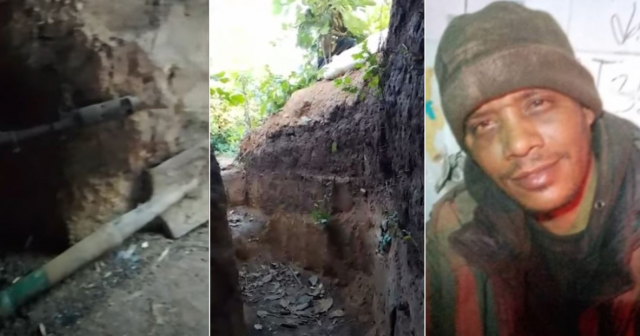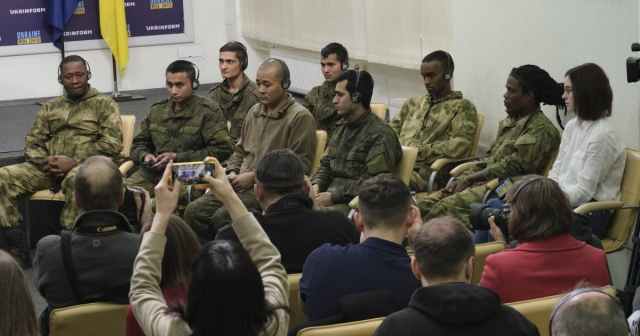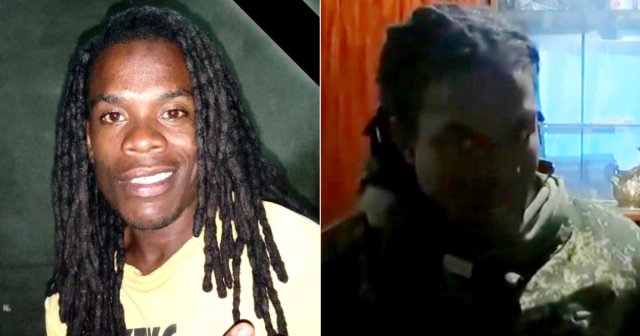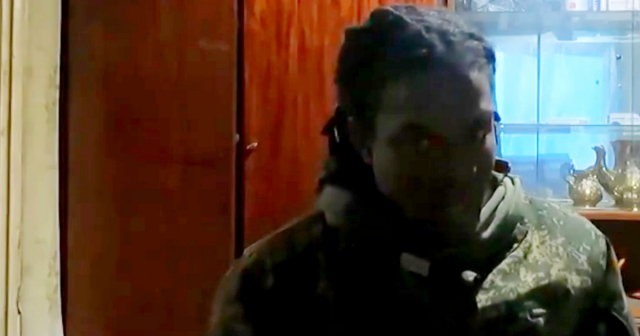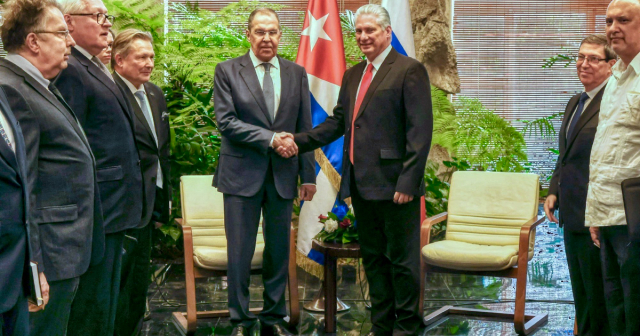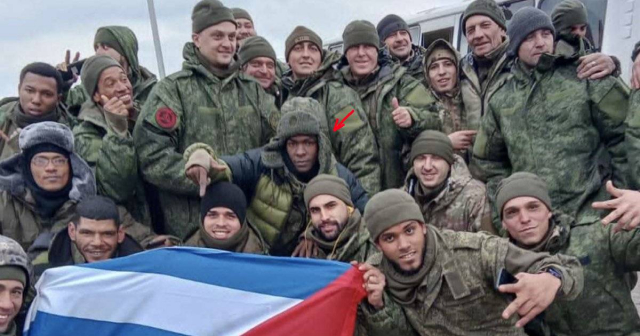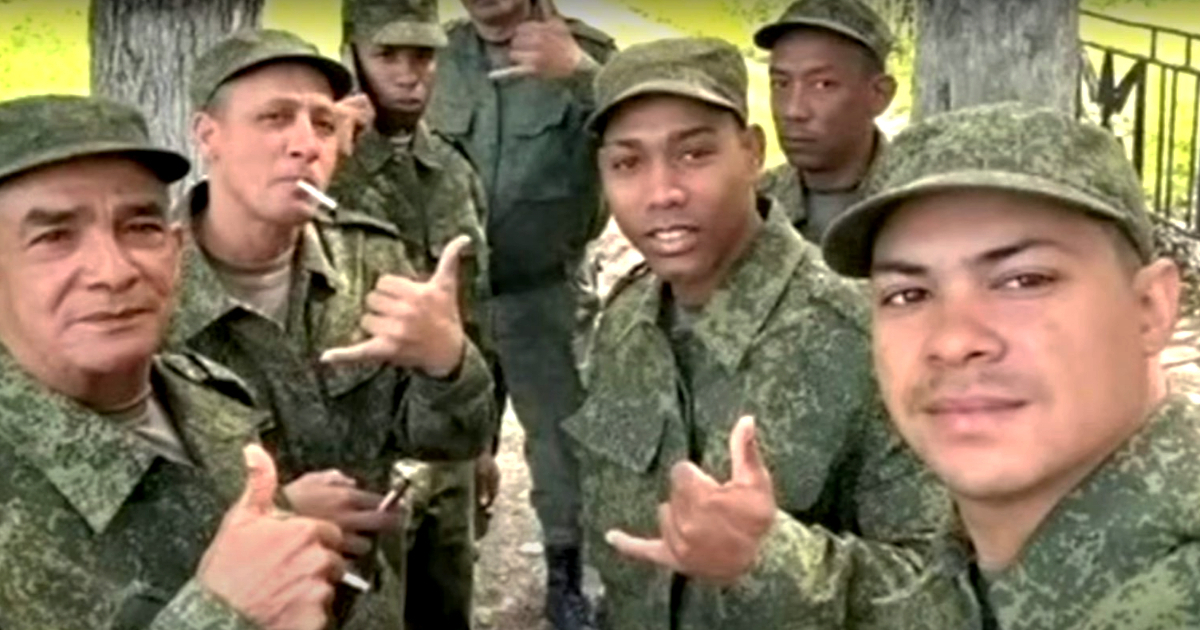
"In Cuba there is no future", responded one of theCuban mercenaries recruited by the Russian Army to questions from investigative journalists of the news channelFrance 24 about the reasons for enrolling in the invasion of Ukraine.
Afterthe first revelations that brought to light the presence of Cuban mercenaries at the service of the Kremlin's interests, international media outlets have followed the trail of a hundred of themwhose names and personal information were exposed by the hacker group “Cyber Resistencia”.
This Monday,The observers ofFrance 24 published the testimony of one of them who acknowledged having been recruited by the Russian Army and being fully aware of the terms of the agreement signed, which he did not reveal because they were confidential.
“How long do you plan to stay here in Russia?” the French journalists asked the Cuban.“I planned to stay for a long time, I came here to have a better life. In Cuba I couldn't find work”, responded the mercenary identified under the false name ofJuan.
Another of them, identified asLuis, also confirmed that he had left Cuba heading to Tula.“In Cuba there is no future. That is why many Cubans emigrate. I decided to leave to help my family”, he admitted.
Juan arrived in Russia two months ago. He had no qualms about acknowledging that he is paid “for what he does,” but he declined to give details on this issue, because “it is confidential.”
This Cuban mercenary told the aforementioned media that there are many other Cuban mercenaries with him, and that they were all recruited "normally."
Juan doesn't care that Ukrainian hackers have had access to his data and are releasing it. “Yes, I know, everyone here knows that they spread this information,but they tell the truth”.
The Cuban insisted that he knew perfectly well what he was going to be hired for and justified it with his need to“earn a living, to have a better life”.
Luis, for his part, explained a little more about the reasons that led him to enlist in an army of a foreign power, considered by the international community to be the aggressor in the conflict.
“It was I who decided to leave the country, because the economy is in a critical situation. I have always worked, since I was 16, and before I could get ahead. But during the Covid-19 pandemic, there was a monetary change that made things worse. Hereinafter,salaries no longer allow us to survive, especially to buy food,” he explained.
Luis could have been just another emigrant of the hundreds of thousands who have left Cuba in the lastmigration crisis. This is what he recognized; However, far from risking his life on a dangerous journey in search of freedom, Luis chose to risk it in the service of the military interests of a foreign power in exchange for a salary.
“I went to Russia because there was an opportunity, so I wanted to take advantage of it, but I could have gone anywhere else. I left Cuba in July. I had a direct flight to Moscow that cost me $500. Once there, I took a direct bus to Tula,” he told French journalists.
The first revelations and the reaction of the Cuban regime
At the beginning of September, the “hacktivists” of “Cyber Resistencia” infiltrated the personal email account of a high-ranking Russian officer involved in recruiting Cubans for the invasion of Ukraine.
An article published in the digital mediumThe Intercept revealed thatMajor Anton Valentinovich Perevozchikov had in his possession 122 scanned passports of recruited Cubans at the headquarters of the Russian Armed Forces in the city of Tula.
Likewise, they published what they say is the enlistment contract in Spanish with the Russian armed forces whose activities are based in the city of Tula, south of Moscow.
These contracts detail the incentives Russia offers foreign fighters, such as the promise of a one-time cash payment of 195,000 rubles (approximately $2,000) for those who enlist in the "special military operation" zone in Ukraine. .
In addition, Cuban recruits would receive a monthly payment that varies depending on rank and is around 204,000 rubles (2,000 euros). Spousal and family benefits for residence and obtaining Russian citizenship are also mentioned.
Among the leaked passports, at least 24 of the Cubans sent the Russian recruiter an image of the document proving their entry into Russian territory. The latter show that they arrived in Moscow between July and August 2023, via Moscow's Sheremetyevo airport, via Belarus.
After the revelations that confirmed the presence of Cuban mercenaries hired by the Russian Army, Havana remained in absolute silence for 72 hours, until it issued its first statements.denouncing the existence of a mafia plot of human trafficking and announcing shortly after thearrests of 17 people linked to the alleged plot.
“We have nothing against Cubans who want to sign a contract and legally participate in this operation with the Russian army. But we oppose illegality and these operations are not within the legal framework,” he stated in mid-September.Julio Antonio Garmendía Peña, Cuban ambassador in Moscow, in statements reported by the Russian press.
However,The Cuban Foreign Ministry denied Garmendía Peña a few hours later.
"The unequivocal and invariable position of the Cuban government, in accordance with national legislation, is contrary to the participation of Cuban citizens in any conflict, against mercenarism and against human trafficking," wrote the Cuban Foreign MinisterBruno Rodriguez Grill on his Twitter account.
Thus, Ukraine also took the opportunity to issue statements and send a message to the Cubans in the voice of its soldiers fighting on the front against the Russian invaders.
“Do not be fooled as you were in Soviet times, when you were used for the interests of dictatorships and driven into complete isolation.Better to die with dignity for the freedom of Cuba, than to die as an invader of our land,” the Ukrainians said in a video
What do you think?
SEE COMMENTS (1)Filed in:

